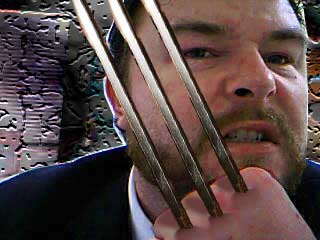Successfully pitching an idea to a producer is about starting up a conversation. You will send off a letter to a producer who makes films you think are similar to the one you want to make. You won’t give them the whole screenplay. You’re just getting them excited, getting them talking to you.
Remember:
- Sell yourself and your idea
- Persistence is everything
- We are all going to be rejected at least once.
- Look at the reaction to your pitch in this rejection and learn from it.
- Join the Australian Writer’s Guild. Register your scripts with them if you want (for safety’s sake).
- Check out the websites in my links section.
Write on McDuff. And damned be he who first cries “Hold, enough!”

